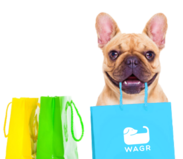You’ve just got a new puppy and you’re elated! After the first few heady moments, though, it’s already time to set about training your little companion.
Establishing a solid foundation with good training is vital to ensure your pup grows into a friendly, accommodating dog. And, what behaviours would classify as foundational? Let’s take a look at a few and how to go about training your puppy in these basic behaviours.
How To Leash Train Your Puppy
A puppy is frisky and excitable. A big ball of energy. When unchanneled it can result in destructive behavior like tearing apart your pillows or excessive chewing. Rein in that energy as soon as you can to reduce boredom and hyperactivity. Familiarize your pup with a leash and collar by letting them wear it for short periods of time in the house. Teach them to anticipate the behavior you expect with the help of cues, treats, and praise. Practice walking and gentle play inside the house or a garden, if you have one, before you take them out.
Once your pup appears confident, take them for a short walk around the neighbourhood. It’s not going to be without challenges as there are new sights, sounds, and smells to explore for your doggie! They might lunge excitedly at the smallest of things but you can gently restrain by reinforcing the cue.
When to begin: Start training pups to walk on the leash when they are around 8 weeks old.
Bonus: Avoid these mistakes when you’re training your puppy to walk
How To Train Your Dog To Speak Or Be Quiet
Dog tricks are great conversation starters. They’re also a great way to keep your dog mentally agile and form a strong bond. How much your dog is willing to speak differs based on their personality. Some dogs are more vocal and bark when you tug at the leash or try to take their toy away from them. Some dogs require more work from you. Note the bark with a designated word like ‘speak’ or with a click if you’re using a clicker. Once your dog begins to obey the verbal command, you can throw in a hand gesture. Going forward you can use a combination of the verbal and physical commands to make them bark.
In the same way, you can teach your dog to be quiet. Use both verbal and hand cues to train them. Eventually, you'll be able to use the speak and quiet commands together.
When to begin: You can start training your pup when they're about 7 to 8 weeks old
Bonus: Teach your dog to speak with these tips
How To Potty Train Your Dog
Potty training your puppy is one of the most important things you need to do as soon as you bring the little furball home. Not being able to keep your home clean leads to frustration and is a common factor that puts relationships with a new dog in danger. With a little bit of patience and persistence, this can definitely be avoided.
To begin with, practice a few basic rules like
1. Controlling your puppy’s diet to ensure they are healthy but not overfed. It’s best to stick to a schedule and give small meals two to three times a day as your puppy’s digestive system is still developing. Overfeeding can result in diarrhea and training becomes tougher
2. Establish a routine to convey as soon as possible that there is a designated area for your puppy to do their job.
3. Be gentle with your pup. Losing your temper and resorting to punishment will never work. Instead, work with positive reinforcement and praise them when they do something right.
4. Take them out often, perhaps every couple of hours to avoid as many accidents as possible. Go for a quick walk or after feeding, sleeping, and playing.
When to begin: As young as 8 weeks.
Puppies have short attention spans and you should be mindful of keeping them comfortable. Any training sessions hold not last for more than a few minutes depending on their age. Train them with love and praise, and your pup will do wonders!











